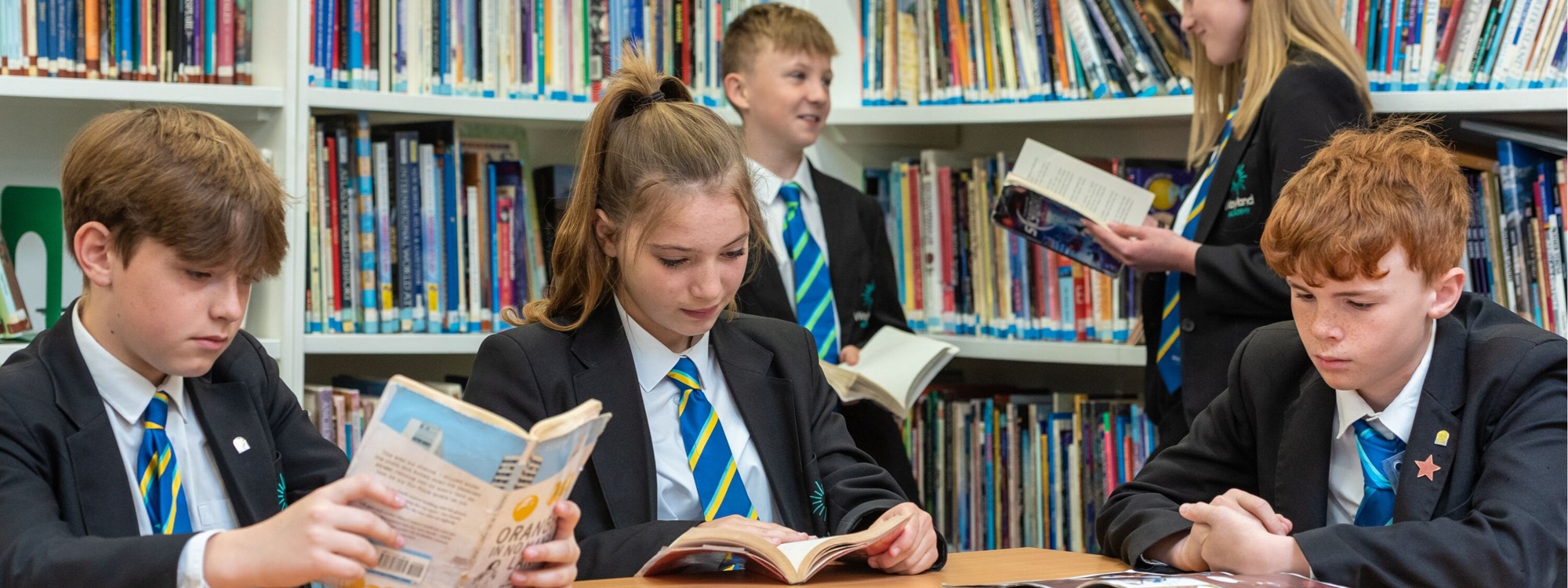- Home
- Curriculum
- Developing Literacy & Reading
Developing Literacy & Reading
Reading at Wayland Academy
Across the country, our children’s reading ability is steadily improving but, with fundamental reading gaps still visible, we are seeing a deficit in academic success.
Recent statistics have shown that 73% of pupils leaving primary school are capable readers, which appears as a reasonably high result, but this means that one in four children will enter secondary school without the basic reading skills to engage with our curriculum and the more demanding pressures of life beyond school.
In many cases, the gaps are created before a child sets foot in a school. In a recent poll conducted by the Department of Education, only 31% of children are reading at home daily: the reading gap is widening and this is why developing literacy and reading is so important to us at Wayland Academy.
We are invested in developing the literacy and reading skills of every child at our school. To facilitate this, we use a number of approaches to make sure your child receives the best education.
Accelerated Reader Programme
Wayland Academy has subscribed to the Accelerated Reader Programme which has already become a fundamental part of our curriculum for students in Years 7, 8 and 9. We believe that reading is one of the most important skills a student can learn; not only will it raise literacy standards amongst all students but will also hopefully promote a lifelong love of reading.
What is Accelerated Reader?
Accelerated Reader is a computerised reading programme that meets the needs of individual students. Students complete an initial reading test and are given their personalised reading level, their Zone of Proximal Development (ZPD). This enables students to find a book which is appropriate for their reading level.
How Accelerated Reader works
Accelerated Reader works in five easy steps.
1. Students select a book from the library within their ZPD.
2. Thirty minutes of reading is completed every day, during lesson time, on a rolling timetable.
3. Once students have finished their books, they take a comprehension quiz.
4. Every student will be assessed each term using the STAR testing system to monitor their progress by measuring their reading age.
Students who wish to complete quizzes at home can access the Accelerated Reader website here or download the app on the App Store.
The Wayland Canon
Thirty books that ‘make’ a Wayland pupil was launched in 2020 and represents a range of diverse authors and experiences. Multiple copies of all books will be in the library and the list is shared in form time during the Autumn term.
We believe that pupils should have access to diverse texts, representing a wide range of voices, backgrounds and experiences. Wayland will promote diversity in reading materials and reading lists. Our library collection reflects a broad range of writers and text types. We regularly listen to requests for books that students would like to see as a representation of their identity.
Our goal is for all pupils to leave Wayland Academy with a deep love of reading, with the confidence and ability to read diverse texts fluently and critically. To achieve this aim, we embed close reading instruction across the curriculum, and promote reading for pleasure for all children.
If you have any questions about Wayland Academy’s reading strategy, please contact Mrs Stroud.
Why are we invested in developing literacy and reading?
Across the country, our children’s reading ability is steadily improving but with fundamental reading gaps still visible, we are seeing a deficit in academic success that is in our grasp to close at every possible moment through a student’s journey in education.
Recent statistics have shown that 73% of pupils leaving primary school are capable readers, which appears as a reasonably high result, but put simply, one in four children will enter into secondary school without the basic reading skills to engage with our curriculum and the more demanding pressures of life beyond school. In many cases, the gaps are created before a child sets foot in a school – in a recent poll conducted by the Department of Education, 31% of children are reading at home daily; the reading gap is widening before we are able to brace ourselves against this ever increasing gulf.
This is why developing literacty and reading is so important to us at Wayland Academy.



